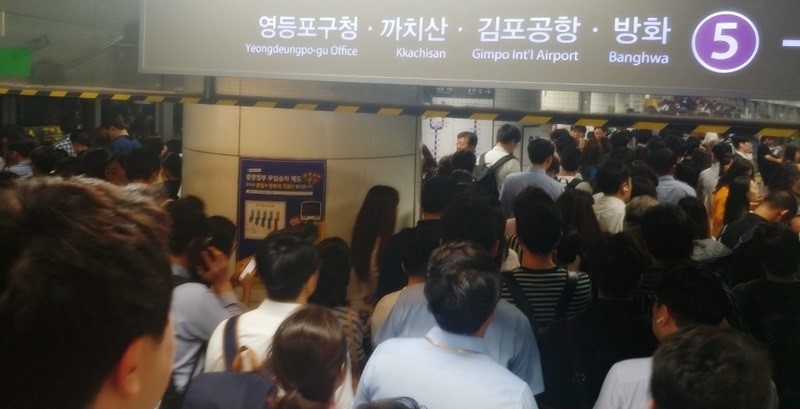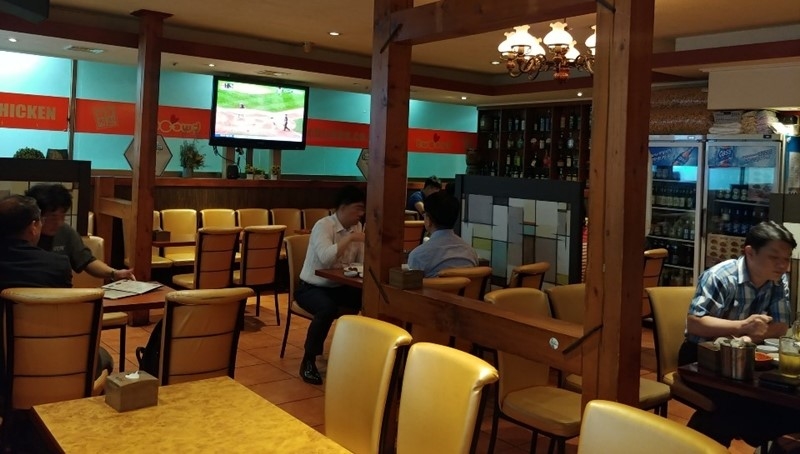
The busy business district around Gwanghwamun Station in central Seoul on July 8 around 6 p.m. is packed with workers going home.
By Kim Eun-young and Kim Hwaya
Photos = Kim Eun-young
Seoul | July 8, 2019
Since the effectuation in July last year of the 52-hour workweek for companies with more than 300 employees, the expansion of the system to many other workplaces in the country and the trend toward avoiding overtime are changing daily life for workers.
Cultural centers at department stores and fitness centers are crowded with office workers seeking self-development after work hours. Enrollment in courses at such cultural centers increased 20% from last year, and membership at one gym near central Seoul's Gwanghwamun Station rose 30%.
Yoon Ji-su, 38, an office worker for a major corporation whose office is in the Gwanghwamun area, said, "I used to exercise once a week but now I can do it three times thanks to the shorter working hours. I can also have dinner with my family more often." Three times a week, she said she works during her lunch break and grabs a sandwich or lunch box so that she can leave the office on time.
Another company worker, Han Ji-hun, 41, said the biggest change from fewer working hours is office culture. "The change I like the most is lower pressure to work extra hours and attend company dinners," he said, adding, "My focus on work has also improved."
Not everything about the reduced working hours is positive, however. Lim Hyun-jung, 28, who works for a foreign corporation, said, "Since I don't get overtime pay anymore, my income has been greatly reduced," adding, "So I do part-time jobs such as translation and interpretation on weekends."

This is a bar near Jonggak Station in central Seoul on July 8 at 8 p.m. The owner said his establishment used to be crowded evenings until 1 a.m. but the 52-hour workweek has made things quiet there even at 9 p.m.
Many restaurants and bars in business districts also complain of reduced business because of the 52-hour workweek. Owners are using strategies such as staff downsizing and special meal deals to draw more customers.
Kang Gweon-yong, the 60-something owner a chicken and beer restaurant around Jonggak Station, said, "Sales are down 30% from last year," adding, "We offer a Korean buffet during lunch time besides our evening operations."
The government, however, is continuing its policy drive to improve work-life balance for workers. From July 1 this year, 1,047 companies in 21 business categories that had been previously exempt from the reduced hours rule, including bus, broadcasting and finance companies, started to implement the 52-hour workweek. The system from January next year will again be expanded for companies with more than 50 and fewer than 300 employees.
Most Koreans have positive views of the 52-hour workweek, according to a recent survey about fewer working hours conducted by the Ministry of Culture, Sports and Tourism. Yet more strategies are needed to tackle the side effects of the system, including reduction in pay and falling revenue at businesses around business districts at night.
eykim86@korea.kr